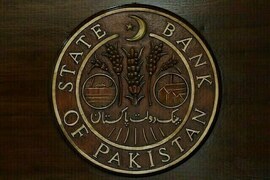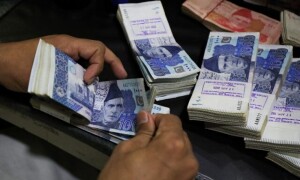France was braced Sunday for a new show of force over a youth jobs law after unions, students and the left-wing opposition rejected a government offer of compromise, calling protestors back into the streets.
President Jacques Chirac's attempt to defuse the crisis, promising in a televised speech on Friday to ratify the unpopular measure, but water it down with a new law, was judged unconvincing by 62 percent of the public, a CSA poll showed.
More determined than ever to fight the First Employment Contract (CPE), its opponents have called for a new day of strikes and demonstrations Tuesday - the fifth in two months - with the main opposition Socialist Party urging the French to turn out en masse.
Last Tuesday's day of action drew between one and three million people into to the streets, France's largest demonstration in a decade.
Air and rail travel are set to be badly disrupted, with walkouts planned at Air France, at the national rail company SNCF and on the Paris metro, while all major civil service and teaching unions support the strike.
Private sector workers in the media, banking, telecommunications, energy and commerce are also expected to join the movement.
The Green Party, accusing the government of dangerously fuelling tensions by signing the measure into law, called for all left-wing politicians to stage a sit-in outside the Sorbonne University in Paris on Monday.
Critics see the youth contract, which aims to encourage companies to hire workers under the age of 26 by loosening redundancy rules during the first two years, as the beginning of an attack on French job security.
Two months of protests against the measure have closed down dozens of French universities, with student protests broadening out in recent days to include blockades of roads and railway lines.
There have been fears the tensions could spark fresh trouble in France's poor suburbs, after young suburban rioters attached themselves to recent marches, attacking participants and police and vandalising shops and cars.
In answer to the groundswell of protest, Chirac said he would sign the measure into law but would seek new legislation to reduce the trial period to one year and require employers to give a reason for any dismissal.
Though technically applicable from Monday, the measure - part of a law on equal opportunities drawn up after last November's riots - is effectively suspended and the centre-right UMP has contacted unions to start drawing up the legislation that will eventually supersede it.
Union chiefs have warned however that they will not settle for less than a law repealing the CPE.
The head of the UMP in parliament, Bernard Accoyer, said the government's top priority was to "renew dialogue" with the unions, and said he hoped a fresh round of talks could start "as early as Tuesday".
Slammed as muddled and indecisive by his opponents and most of the press, Chirac's solution appeared to be an attempt to stay loyal to his ally Prime Minister Dominique de Villepin, who fathered the measure, while conceding some ground to the street.
BR100
15,235
Increased By
150.4 (1%)
BR30
44,824
Increased By
812 (1.85%)
KSE100
149,971
Increased By
1353.3 (0.91%)
KSE30
45,655
Increased By
407.2 (0.9%)






















Comments
Comments are closed.